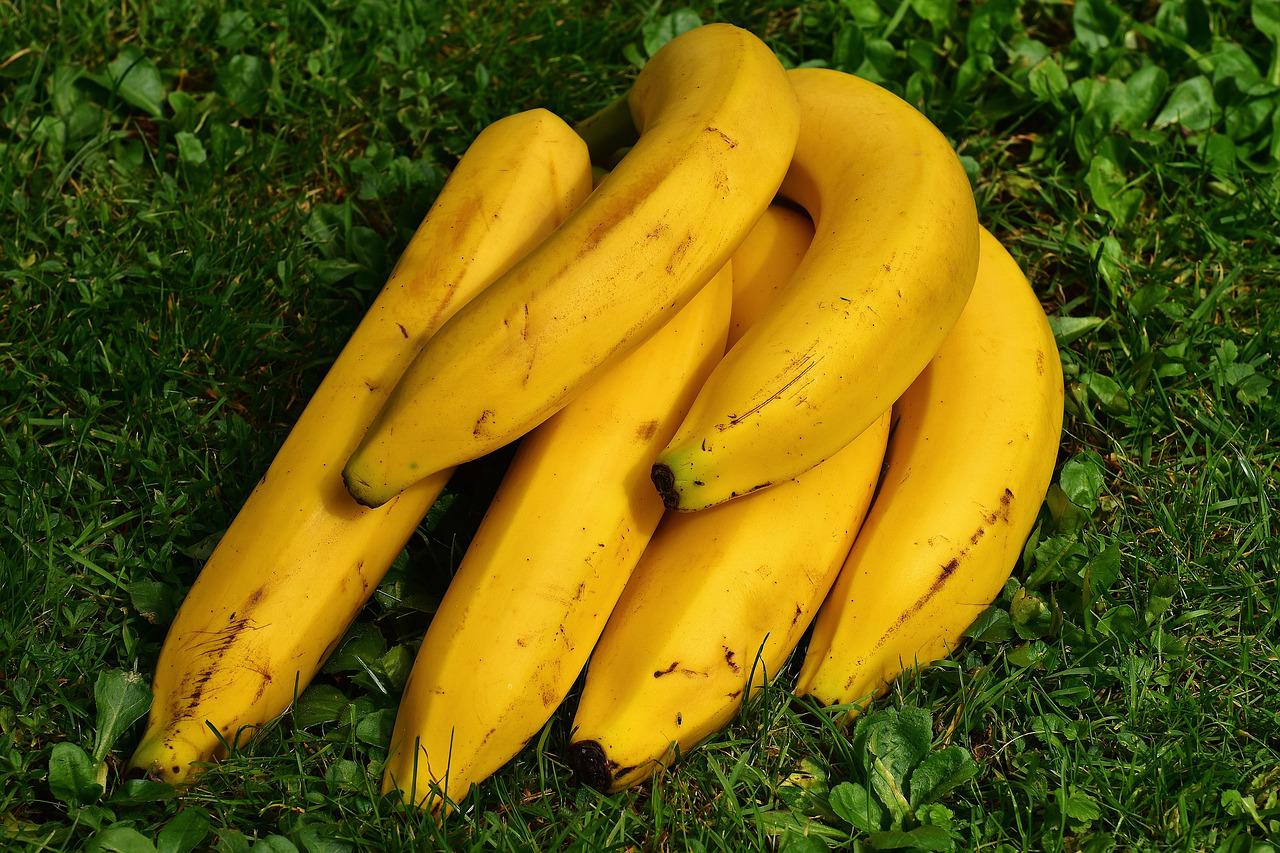A crucial aspect of the management of diabetes is the selection of food. Consuming food items with a medium or low glycemic index is advisable, as diabetes is associated with increased blood sugar levels. The glycemic index indicates how much and how fast the blood sugar levels rise after consuming a particular food item.
In this article, we attempt to answer whether bananas are good for diabetes or not. To do so, we first understand the nutritional profile of the fruit.
The nutritional profile of a banana
One serving of medium-size bananas contains
- 110 calories
- 15 gm sugar
- 28 gm carbohydrates
- 0 gm fats
- 1 gm proteins
- 3 gm fibre
- 450 mg potassium
In addition to the above list, bananas also have vitamin C and vitamin B6. Minerals and micronutrients like phosphorus, magnesium, phosphorus, copper, zinc, selenium, thiamine, folic acid, and niacin are also present in bananas.
The glycemic index of bananas depends on the ripeness of the fruit.
- Unripe bananas have a low glycemic index (42)
- Ripe bananas have a low glycemic index (51)
- Overripe bananas have a medium glycemic index (62)
Impacts of adding bananas to the diet on blood sugar levels
- Banana is a rich source of sugar and carbohydrates. However, these are simple carbohydrates that instantly lead to increased blood sugar levels. On the other hand, the fibre content in bananas helps slow the absorption of carbohydrates and reduces the spike in blood sugar levels.
- Unripe bananas or green bananas are a rich source of resistant starch. This form of starch contains long-chain carbohydrates that cannot be digested by the upper part of the digestive system. This property of resistant starch prevents a sudden increase in blood sugar levels. Resistant starch also improves metabolic health by promoting the growth of gut-friendly bacteria. It is also known to improve insulin sensitivity in type II diabetes.
- Vitamin B6 in bananas helps prevent diabetic complications like diabetic neuropathy. It also prevents gestational diabetes and impairment in glucose tolerance.
- People with diabetes are more prone to various degenerative diseases. Bananas are a rich source of antioxidants that prevent these diseases. These antioxidants also reduce the formation of free radicals and are proven to protect an individual from type II diabetes.
- Bananas are a rich source of potassium. Optimal potassium levels are necessary for insulin synthesis in the body. Hence, the inclusion of bananas in the diet helps decrease the prevalence of type II diabetes in an individual.
- The phytochemicals in bananas decrease the risk of diabetes-associated complications like heart problems and strokes. Banana must be added to diet plans for diabetes care for people prone to these complications.
- The high vitamin content and hydration value of bananas help to improve muscle-related complications like soreness and cramping.
- Banana is a rich source of sugar and simple carbohydrates that are good for preventing hypoglycemic shocks that commonly occur after a workout in people with diabetes.
The above health benefits prove that banana is good for diabetes. However, it is essential to consume this in moderated volume and manner. The ideal way to include bananas in the diet for better management of blood sugar levels depends on the following factors:
- Total calories intake: As bananas are a rich source of carbohydrates, one must keep an eye on their daily total carbohydrate intake while including bananas in their diet.
- Portion: As banana contains simple carbohydrates, it is advisable to eat a medium-sized banana. This will limit carbohydrate intake while still being beneficial.
- Ripeness: The glycemic value of bananas changes with their ripeness. The inclusion of unripe bananas in the diet is always beneficial. They also contain a high amount of resistant starch and prevent a sudden spike in blood glucose levels.
- Combine with proteins and fats: Combining bananas with food items containing proteins (like nuts, nut butter, egg, and yoghurt) and fats reduces the chances of a sudden spike in blood sugar levels. You can also add a banana with other fruits with low glycemic values. Banana can also be used to replace sugar in baking and cooking.
Final thoughts
Banana is a rich fruit with many vitamins, minerals, fibres, and micronutrients. It is beneficial for people with diabetes as it prevents diabetes-related complications like heart disease, kidney disease, and stroke. Bananas also contain simple carbohydrates and sugar.
If one is still wondering whether a banana is good for diabetes, the answer is yes, if it is consumed in moderation. Excessive consumption can cause a sudden increase in blood glucose levels, indigestion, bloating, diarrhoea and gas.
Use the sugar fit app to learn more about diabetes care and management. This app provides a personalised management plan with which you can reverse type II diabetes and prediabetes.


